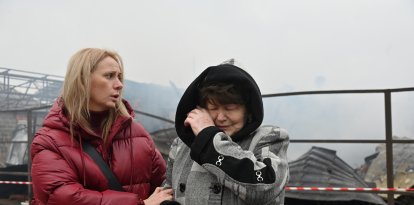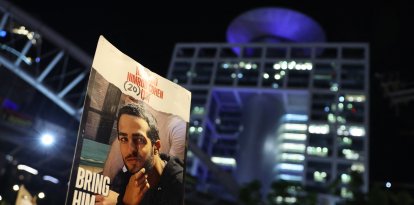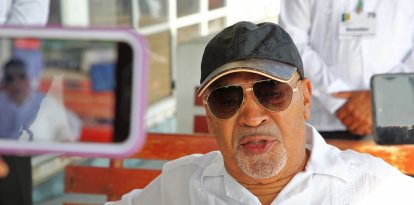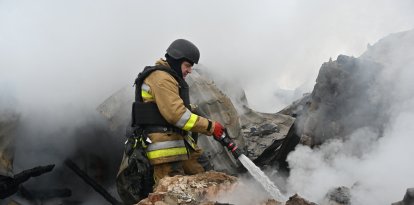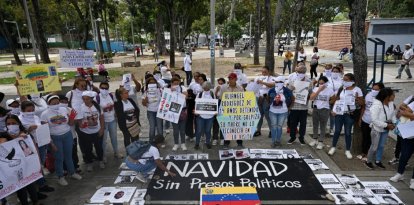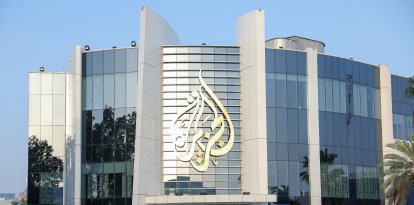Syrian regime of Bashar al-Assad has fallen
After decades of rule, Syria finally threw off the yoke of the al-Assad family and now enters a new era filled with uncertainty and, most likely, instability.
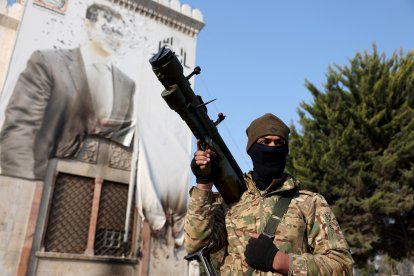
A rebel raises a gun in front of a giant poster of Bashar Assad
The regime of Bashar Assad, who took power in 2000 after the death of his father Hafez al-Assad, has fallen after a surprise and swift offensive by jihadist rebels that lasted just under two weeks.
It all began eleven days ago, with an offensive in northwestern Syria, apparently in retaliation for the bombing of areas controlled by armed groups opposed to the Syrian dictator. As the hours passed, the rebel forces advanced while targeting the capital Damascus as the final objective. The beginning of al-Assad's fall occurred in Aleppo, Syria's second-largest city, taken by the rebels on Nov. 29. It was followed by the fall of Hama, to the south, on December 5. Today, Dec. 8, jihadist forces seized the country's third city, Homs, and then entered Damascus to claim control of the capital and declare Syria "free of Bashar al-Assad."
In a statement on Sunday, rebel forces also claimed that Bashar al-Assad fled the capital. According to data from the Flightradar website, a Syrian Air plane took off from Damascus airport around the time the capital was reported to have been seized by the rebels.
"We declare the city of Damascus free from the tyrant Bashar al-Assad," the Military Operations Command wrote in a post on Telegram. "A free Syria awaits displaced people around the world."
"We celebrate with the Syrian people the news of freeing our prisoners and releasing their chains and announcing the end of the era of injustice in Sednaya prison," the rebels said according to statements carried by Reuters.
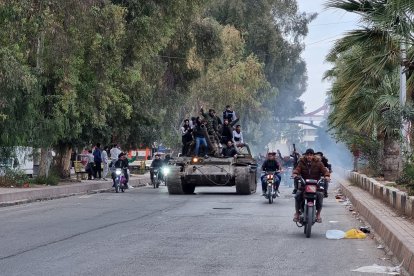
Rebels ride in a tank in the southern Syrian city of Daraa December 7, 2024.
Sednaya is a large military prison on the outskirts of Damascus where the Syrian regime held thousands of people, including political rivals.
Likewise, the head of the main Syrian opposition group abroad, Hadi al Bahra, also declared that Damascus is now "without Bashar al-Assad."
For several hours now, thousands of people gathered at key points in Damascus, including squares and historic buildings, waving and chanting "Freedom."
One of the rallying points was the Ummayyad Squares, a landmark in the heart of Damascus where important state bodies, such as the Defense Ministry and the Syrian Armed Forces, lie.

Civilians and rebels celebrate as they gather in the Damascus suburb of Jaramana.
Syrian citizens and rebels are destroying posters of the dictator and also firing in the air to celebrate the victory.
As thousands celebrate in the streets of Syria for the fall of al-Assad and rebels continue to advance to control the entire country as the Syrian Army presents no opposition, the country's prime minister, Mohammed al-Khalali, said he did not flee Syria and is ready to "cooperate"with any leader "elected by the people" and in any process of transferring power.
"This country can be a normal country that builds good relations with its neighbors and the world ... but this issue depends on any leader elected by the Syrian people. We are ready to cooperate with him (that leader) and offer all possible facilities," Jalali said in a speech broadcast on his Facebook account.
The commander of Hayat Tahrir al-Sham, Abu Mohammed al-Golani, the main rebel leader, spoke to fighters after the capture of Homs and asked them not to harm "those who lay down their arms."
But the fall of al-Assad inevitably generates uncertainty in the region, especially since part of the rebel groups are close to Islamic fundamentalism.
Indeed, the fall of al-Assad provoked surprise and fears in major Arab capitals and to several global powers. For example, Qatar, Saudi Arabia, Jordan, Egypt, Iraq, Iran, Turkey and Russia issued a joint statement calling the crisis dangerous and calling for a political solution.
Iran and Russia were the powers that had long propped up the al-Assad regime. Turkey, on the other hand, historically backed the rebels.
Faced with regional instability, especially after the start of Israel's wars against Hamas and Hezbollah, coupled with the war between Russia and Ukraine, al-Assad was left exposed and orphaned of allies, leading to a stunning crumbling of his regime in less than two weeks.
U.S. President-elect Donald Trump declared in a statement that Washington should not get involved in someone else's conflict.














